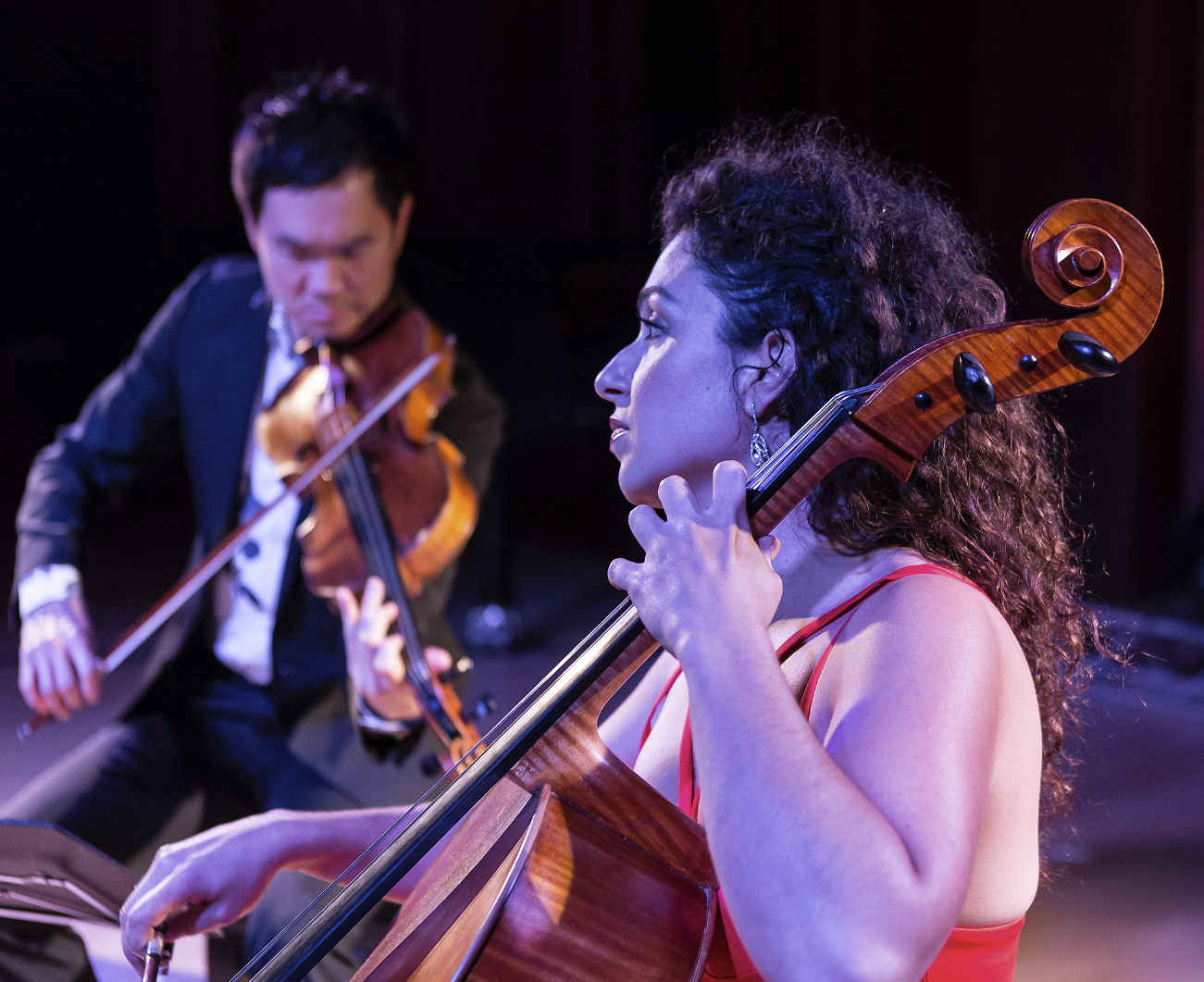Camerata Pacifica Concert for Trump Era
Chamber Music Ensemble Performs Old and New Works with Political Overtones

Adrian Spence insists this week’s Camerata Pacifica program is not overtly political. “I don’t believe I should make my stage a political pulpit,” asserted the chamber music ensemble’s longtime artistic director. But he admitted that when he put together the program two years ago, he was trying to be provocative — and that quality is intensified by the current political climate. This isn’t music that will send people into the streets wielding pitchforks, but it should inspire some deep contemplation of the disquieting times we live in.
The concert, performed Friday, April 7, 7:30 p.m., at the Music Academy of the West, opens with three works in which contemporary American composers respond to events or personalities in the political sphere. It opens with John Harbison’s Abu Ghraib, a lamentation for our use of torture in the years after 9/11.
“I was interested in trying to portray musically the idea of ‘wrongness’ — that something is outside the norm of behavior,” Harbison told Spence in an interview that has been posted to YouTube. “The first half of each movement is a portrayal of a situation in which something has been allowed to go really out of line. The two instruments [cello and piano] are following a similar trajectory, but they seem to be constantly stepping on the wrong terrain somehow. The second half asks ‘Can we grieve this?’ and ‘Can we reassure ourselves this isn’t what we are?’”
It will be followed without pause by two works by Michael Daugherty: Sing, Sing: J. Edgar Hoover and Paul Robeson Told Me. The first features the recorded voice of the former FBI director, talking about wire-tapping his enemies and even singing the national anthem. Spence calls it “a chillingly powerful piece. Within 30 seconds, the hair on my arms was standing up.”
The program concludes with the second of Beethoven’s three Razumovsky string quartets. Spence noted this middle-period piece was written around the same time the composer ripped up the title page of his Eroica Symphony when he learned that its dedicatee, Napoleon, had declared himself emperor. “I’m not aware of a composer who was more direct in his expression of his political and humanitarian philosophies,” Spence said. “Beethoven shared the ideals of the French Revolution. To me, this quartet is like a mini Eroica Symphony. You can hear his emotional turmoil and struggle — and also hope.”
In between the Daugherty and Beethoven comes John Cage’s famous (or infamous) 4′ 33“, which consists entirely of silence. That perhaps uncomfortable interlude will provide audience members an opportunity to emotionally absorb what they’ve been hearing.
It all sounds quite bracing. But will audiences really “get” what these composers are conveying? The notion of established norms of behavior being callously disregarded is once again part of the national conversation, thanks to President Donald Trump. But when people hear Harbison’s musical depiction of that condition, will they make the connection? “Some will and some won’t,” Spence replied. “Ultimately it doesn’t matter. …We get 200 or 300 people together for these concerts. This creates a collective reception. If you’re a less-experienced listener, you may not know what’s happening, but the emotional ambiance of the room is such that you won’t be able to ignore the power of the music.”
Or fail to grasp its importance. “Classical music is an inviolable emotional history of [human]kind,” Spence noted, “one that can’t be rewritten by the victors.”
4·1·1 Camerata Pacifica performs Friday, April 7, at 7:30 p.m., at the Music Academy of the West’s Hahn Hall (1070 Fairway Rd.). Tickets are $56; free tickets are available for people who have never attended one of its concerts. Call 884-8410 or see cameratapacifica.org.



